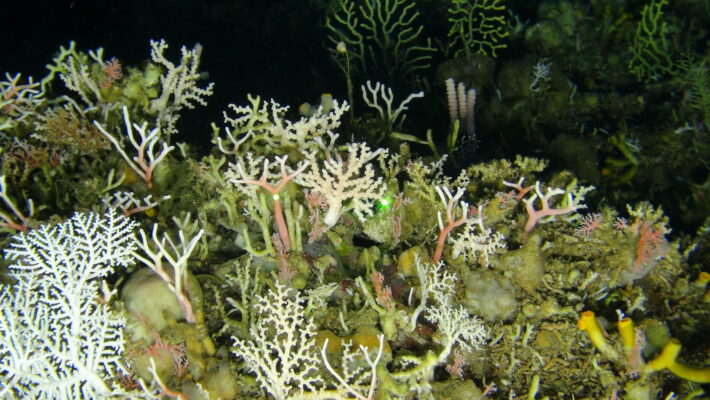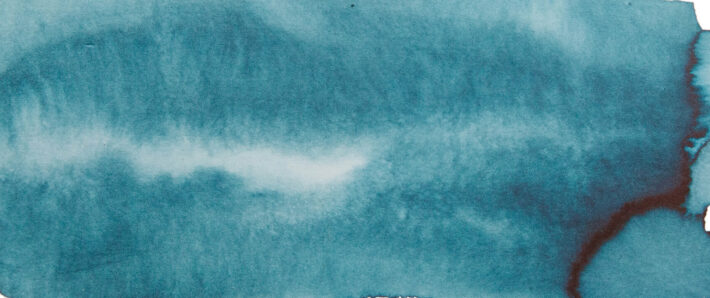MzanSea – launching an innovative ocean literacy website and children’s activity book

Animal forests such as these fragile lace and stony corals inhabitat rocky parts of the slope off East London. Credit: ACEP Deep Forests Project.

The Hub has supported an innovative ocean literacy project, MzanSea that aims to connect South Africans with the diverse marine ecosystems in our oceans. A new website, a children’s activity book and a set of fact sheets have been developed. The MzanSea products also include elements about why and how to care for ocean ecosystems and also profiles young marine scientists studying different ecosystem types.
Three Oceans, many ecosystems
South Africa is a country with three connected oceans but most people have limited, if any, experience of the amazing ecosystems that lie beneath the surface of the sea. While many people are familiar with the range of ecosystems on land – forest, fynbos, savannah, grasslands and more, most people struggle to name the aquatic equivalents and most people think of the sea as just a single biome. However, just as on land, the sea has many different ecosystem types each with their own types of animals, different ways of functioning and different values to humans.
Rocky shores, kelp forests and coral reefs are familiar to some but few people have any knowledge about life in deeper water. The MzanSea products introduce the magical animal forests, deep midnight margins and liquid highways that connect ocean basins, nations, ecosystems and cultures.
The MzanSea website will take viewers to undersea mountains or seamounts, to submarine canyons or the hidden life of sandy and muddy shelves.
Rolling back the blue blanket
The MzanSea team noted that many marine scientists forget what a privilege it is to experience and explore marine ecosystems, so they decided to share their experiences with others. Prof Kerry Sink, Principal Scientist at the South Africa National Biodiversity Institute (SANBI) explained that she was once asked in an interview what superpower she would like to possess. She responded that she would like to be able to part the sea – like Moses- to reveal just for a moment the incredible diversity of ecosystems that lies beneath the ocean surface.
“The MzanSea team are working to help realise the dream of sharing the amazing marine ecosystem diversity in South Africa’’ said Sink.
Sink’s mother, Sandra, came up with the term “’rolling back the blue blanket’’ when explaining the need to reveal marine ecosystems while she volunteered as an education guide with Dr Judy Mann-Lang, one of the project developers at the South African Association for Marine Biological Research (SAAMBR). When asked about the project impact Judy said ‘’I am really excited that for the first time South Africans and indeed people around the world will have the chance to explore our fantastic ocean ecosystems. These educational resources are significant because they will build the ocean literacy that is needed to develop South Africa’s blue economy. For example, if we want to do mining in the ocean, we need to understand the ecosystems we are mining’’.
The MzanSea products include elements about why and how to care for ocean ecosystems and also profiles young marine scientists studying different ecosystem types.
The MzanSea Project was made possible by the One Ocean Hub.
Visit the Mzansea website here
For further information, please contact:
Prof Kerry Sink, SANBI and Nelson Mandela University
Dr Judy Mann, SAAMBR
About SANBI: The South African National Biodiversity Institute (SANBI) is mandated to monitor and report on the status of the Republic’s biodiversity. Its activities include undertaking and promoting research on indigenous biodiversity and its sustainable use; establishing and managing collections of plant and animal specimens; managing and maintaining all National Botanical Gardens, with their facilities for horticultural display, environmental education, visitor amenities and research; collecting and disseminating information about biodiversity; assisting in the development of a national biodiversity framework, including bioregional plans and strategies; and coordinating programmes in conservation and sustainable use of indigenous biological resources and the rehabilitation of ecosystems.
About SAAMBR: The South African Association for Marine Biological Research SAAMBR, founded in 1951, is a unique Non-Government, Non Profit Company and Public Benefit Organisation. In 2004, SAAMBR became the cornerstone of uShaka Marine World in Durban. https://www.saambr.org.za/
About SAEON: SAEON is a business unit of the National Research Foundation (NRF) and serves as a national platform for detecting, translating and predicting environmental change through scientifically designed observation systems and research. SAEON also captures and makes long-term datasets freely accessible, and runs a science engagement programme. SAEON has six nodes dispersed geographically across the country.